
The fish farming industry is tending to be Greek in name only, as after the merger of Nireas, Selonda, Andromeda and Perseus under the Avramar group, the majority package of Kefalonia Fish Farms passed to foreigners.
If we add the recent return of Kallimanis via Turkey, which of course does not belong to the aquaculture sector, it is clear that the catch market, both in HoReCa and in retail, is evolving into a foreign capital “game”.
The new majority shareholder of the company Kefalonia Fish Farms, interests of the Geroulanos family, is the Spanish group Grupo Profand based in the city of Vigo in Galicia. The Spaniards acquired 60% of the company Kefalonia Fish Farms, while Pavlos and Lara Barazi-Geroulanou increased their percentage to 40%.
The arrival of a strong international “player” in the share capital of Kefalonia Fish Farms is considered as a step to shield the company against the intense competition with the ambition to create a second pole in the domestic market against the Avramar group.
It is recalled that the Avramar group, the largest – and youngest – player in the fish industry, created after the merger of Nereus, Selonda, Andromeda and Perseus, is based in Valencia, Spain and is owned by two foreign AMER funds, CapA and the Abu Dhabi state fund Mubadala Investment. In total, the Avramar group in Greece and Spain has 72 fish farms, 12 fish breeding stations, 3 feed mills while supplying products to 35 countries.
Philosofish, with a shareholder in the investment fund Diorasis International based in Luxembourg, is now the largest company with a Greek color.
In total, according to the Hellenic Seafood Association, there are currently 318 marine fish farms operating in the sector, which directly employ 4,397 people, permanent and temporary staff.
Profand and the mysterious Captain Nemo
Profand is already the second largest fishing company in Spain in terms of turnover, behind Nueva Pescanova and is active in free-fishing with a fleet of 24 professional fishing boats, a group of 12 processing plants, and employs 3,000 people.
Like the mysterious Captain Nemo in Jules Verne’s novel “20,000 thousand leagues under the sea”, García Chillón, who is included in the list of the richest people in Spain in 2022, according to EL MUNDO, dominates the seas of almost all continents.
His company operates in South America, North America, India, Africa and Spain. In fact, it is the only European company with fishing activities on the east coast of the United States.
The Kefalonia Fish Farms company is also targeting the US market, in the board of which the Spaniard Enrique Bernardo García Chillón, owner of Profand, now participates as a member. The chairman and managing director is Ms. Lara Fatima Barazi, while Manoel Carrera Folgoso, Moisés Rodríguez Giráldez and Pavlos Geroulanos are also members.
On the occasion of the acquisition of the majority in the Fish Farms of Kefalonia, whose turnover reached 32.6 million euros in 2020, Enrique Garcia Chillon stated that “thanks to this acquisition, we strengthen our position in the categories of sea bream and sea bass, by controlling all the stages of the process.”
Profand managed to step on the gas in the pandemic 2020 thanks to the positive development of supermarket sales. “Commercial activity in the retail channel has increased, which mitigates the decline in other channels as a result of the Covid-19 pandemic,” the company acknowledged in its annual report, citing its dependence on Mercadona.
The Mercadona supermarket chain is the strongest player in the organized retail sector on the Spanish market. Profand is Mercadona’s main supplier of catch products, as in 2019 it acquired Caladero, then the chain’s supplier.
Prices rising
Although the strong wave of increases in energy costs, fish feed and packaging materials threatens the path to recovery of the Greek fish farming sector, the course of prices, especially for sea bass, somewhat offsets the losses.
Already, in February, on the Italian market, one of the main markets for Greek fish, the prices of farmed seabass made a record high of five years, at 5.2 euros per kilo. On the other hand the price of sea bream may not have risen but it did not fall at all, which is a positive development for the companies.
According to the data published by ELSTAT, the total production of aquaculture items in 2020 increased by 3.4% reaching 133,168.2 tons compared to 2019. At the same time, the value ran at double-digit growth as it reached 558, 8 million euros, an increase of 10%.
Sea bream remained at the top showing the largest quantities and sales. Specifically, 62,269 tons of sea bream were produced, which translated into sales worth 289.81 million euros, recording an increase of 12.1% and 14.5% respectively.
In second place was the sea bass, whose production amounted to 41,173 tons, showing a marginal decline of 0.2% while the value amounted to 209.254 million euros, recording an increase of 4.4%.
However, stone-bass (Argyrosomus regius) emerged as the champion in growth both in quantity and value, the production of which almost doubled in 2020, a fact that was reflected in terms of value, which increased by 33.8%.
Latest News
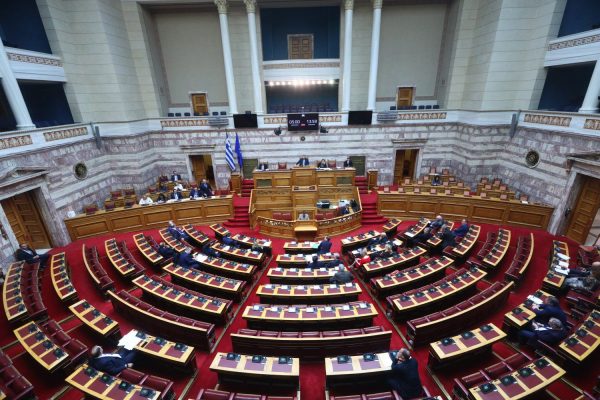
Greece Prepares for State Budget Vote as Debate Reaches Final Stages
Prime Minister Kyriakos Mitsotakis is expected to deliver his remarks late in the evening, shortly before the decisive vote that will conclude the session

DM Dendias: We talk With Turkey But We Always Bring Up Their Unacceptable Positions
Second and last day of closely watched conference, entitled 'Metapolitefsi 1974-2024: 50 Years of Greek Foreign Policy', also included appearances by PM Mitsotakis, Ex-PM Tsipras and PASOK leader Nikos Androulakis, among others

Rhodes Airport Tops Fraport Greece’s Regional Airports in 2024 Performance
According to Fraport's data, more than 35 million passengers (specifically 35.2 million) were handled by Fraport-managed airports during the 11 months.

European Central Bank Cuts Interest Rates by 25 Basis Points
It is the fourth cut of interest rates by Europe’s central bank, a move expected by the markets and financial analysts leading to the rate settling at 3%.

Airbnb: New Measures Add €600 in Extra Costs for Property Owners
Property managers face an immediate administrative fine of 5,000 euros if access to the inspected property is denied or any of the specified requirements are not met.

Economist: Greece Included in the Best Performing Economies in 2024
Meanwhile, Northern European countries disappoint, with sluggish performances from the United Kingdom and Germany.

EasyJet Expands Its Routes from Athens
The airline’s two new routes will be to London Luton and Alicante and they will commence in summer 2025.

Capital Link Forum Highlights Greece’s Economic Resurgence; Honors BoG Gov Stournaras
Capital Link Hellenic Leadership Award recipient, Bank of Greece Gov. Yannis Stournaras, an ex-FinMin, was lauded for his pivotal role during Greece’s economic recovery

Tourist Spending in Greece Up by 14%, Visa Card Analysis Shows
Greece’s capital Athens emerged as the most popular destination, recording a 17% increase in transactions with Visa cards, surpassing even the cosmopolitan island of Mykonos.

Inflation in Greece Unchanged at 2.4% in Nov. 2024
The general consumer price index (CPI) posted a 0.4% decrease in November compared to the previous month



![Φυσικό αέριο: Δυναμικό come back του LNG στην Ελλάδα [γραφήματα]](https://www.ot.gr/wp-content/uploads/2023/01/OT_naturalgas-90x90.jpeg)











![Fraport: Πάνω από 35 εκατ. επιβάτες στα αεροδρόμια το 11μηνο – Πτώση στη Μύκονο [πίνακας]](https://www.ot.gr/wp-content/uploads/2022/06/fraport-90x90.jpg)










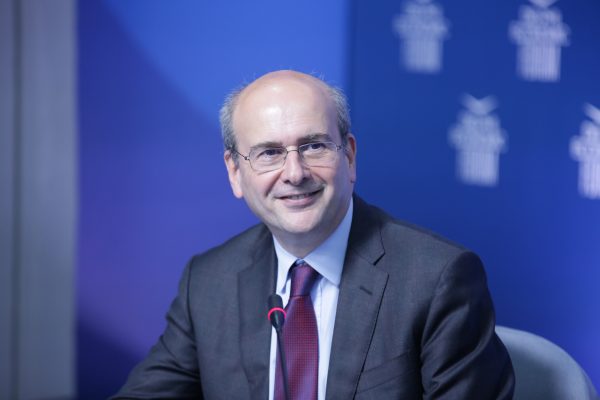
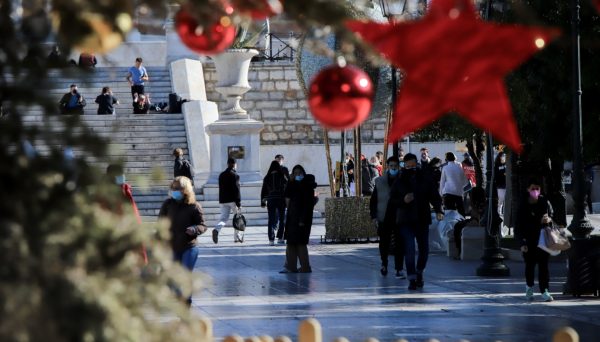



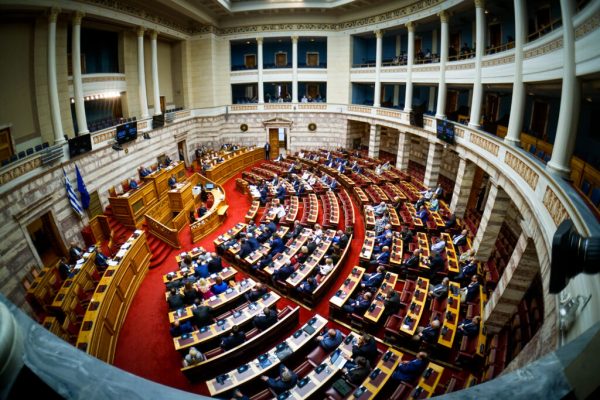

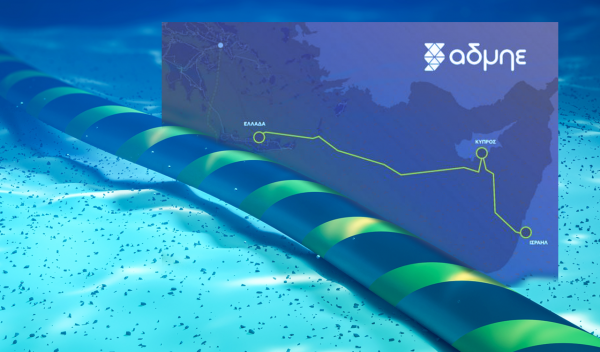

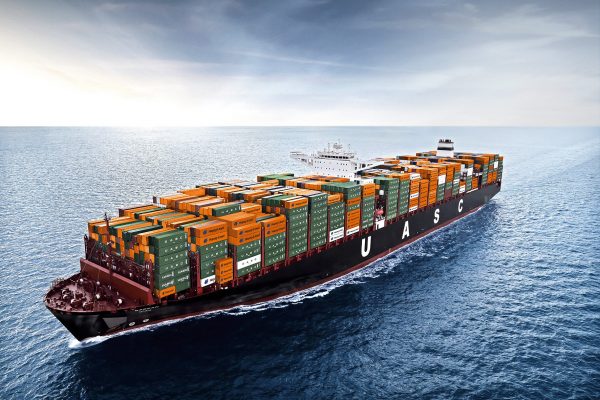






 Αριθμός Πιστοποίησης Μ.Η.Τ.232433
Αριθμός Πιστοποίησης Μ.Η.Τ.232433